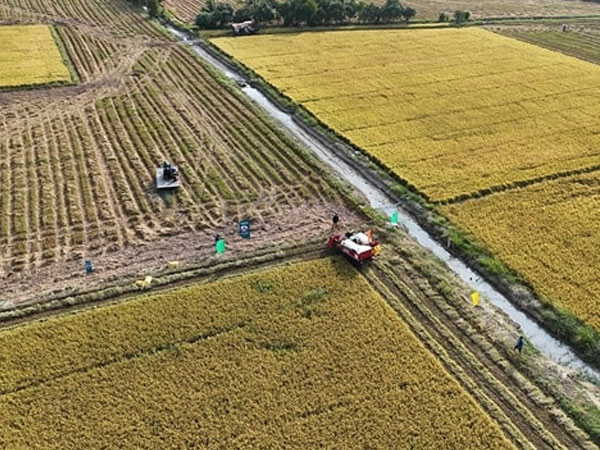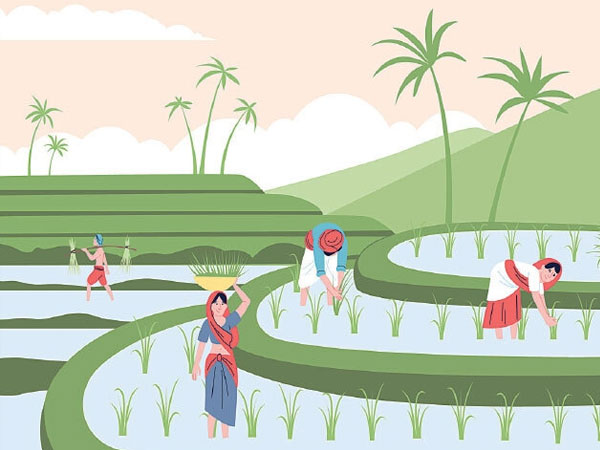 Central-level pilot models for growing high-quality, low-emission rice in the 2025 summer–autumn crop in the Cửu Long (Mekong) Delta have delivered clear benefits, a conference heard in An Giang Province on September 15.
Central-level pilot models for growing high-quality, low-emission rice in the 2025 summer–autumn crop in the Cửu Long (Mekong) Delta have delivered clear benefits, a conference heard in An Giang Province on September 15.
MEKONG DELTA — Central-level pilot models for growing high-quality, low-emission rice in the 2025 summer–autumn crop in the Cửu Long (Mekong) Delta have delivered clear benefits, a conference heard in An Giang Province on September 15.
Speaking at the event held to review models under the “Sustainable Development of One Million Hectares of High-Quality, Low-Emission Rice Associated with Green Growth in the Mekong Delta by 2030” project, Deputy Minister of Agriculture and Environment Trần Thanh Nam said: “The pilot models delivered higher yields, output and profits while significantly reducing carbon dioxide emissions.
“This provides an important foundation for scaling up.”
In the summer–autumn crop, the ministry implemented 11 central-level pilot models across the delta’s provinces of Đồng Tháp, Vĩnh Long, An Giang, Cà Mau and Cần Thơ, involving 355 farmer households and 543.5ha.
Farmers cut seed use by 50–65 per cent to only 70–130 kilogrammes per hectare.
Urea fertiliser use fell by 31.3 per cent while pesticide spraying was reduced by up to a third.
Effective water management meant most fields were drained at least four times, saving water and cutting emissions.
Straw was collected in every model. In half of them, farmers sold the straw for VNĐ307,000–1 million (US$11–38) per hectare, while in the rest it was reused as fertiliser or mulch.
Nguyễn Thị Thu Hương, deputy director of the ministry’s plant protection and cultivation department, said: “The 11 models helped cut production costs by VNĐ1.7–4.9 million ($65–185) per hectare and increased profits by VNĐ4.6–15.8 million ($174–600) per hectare. Average emissions fell by 3.7 tonnes of carbon dioxide per hectare.”
Delegates at the conference said the project’s long-term sustainability requires not only technical processes but also stable value chain linkages, enterprise support and brand-building for green rice.
Ngô Công Thức, deputy chairman of the An Giang Province People’s Committee, referred to challenges such as limited enterprise involvement, unstable value chains and difficulties in identifying leading companies that are willing to participate in the rice branding strategy.
“We hope relevant ministries will provide solutions to make rice farming in An Giang and the Mekong Delta more effective, profitable and sustainable.”
In the upcoming 2025–26 winter–spring crop, the project is expected to implement pilot models on 5,194ha and apply successful ones to 399,000ha.
To ensure efficiency, Nam instructed the Department of Cooperatives and Rural Development and the National Agricultural Extension Centre to continue training farmers and grassroots officials.














© Copyright 2025 The SSResource Media.
All rights reserved.